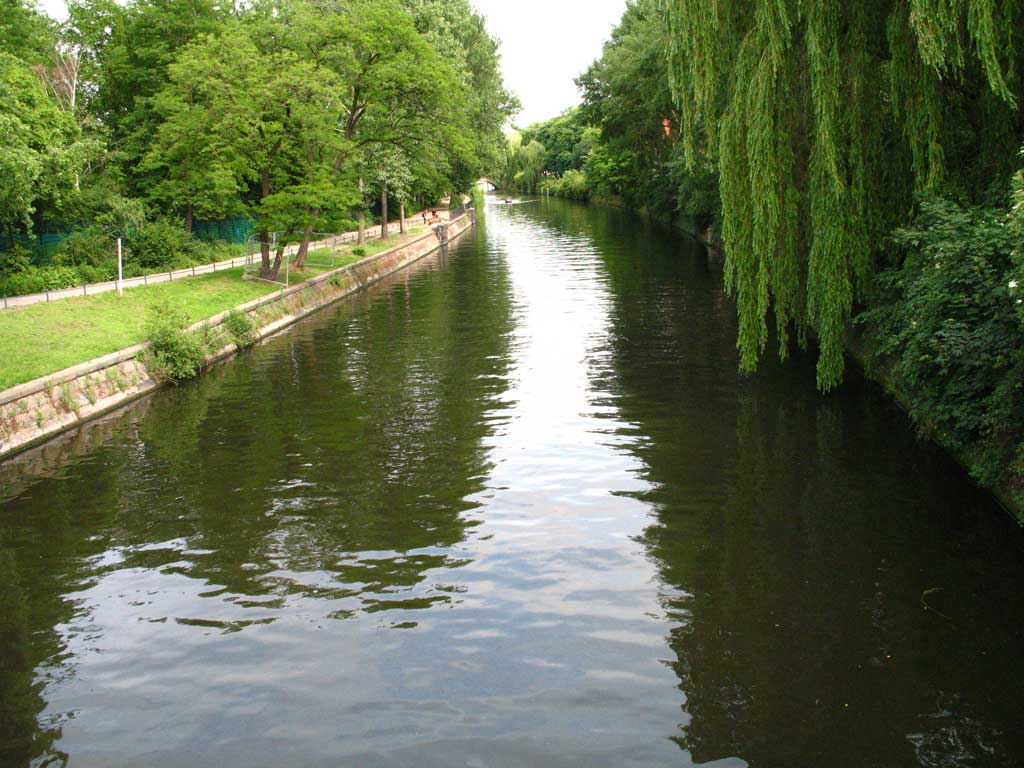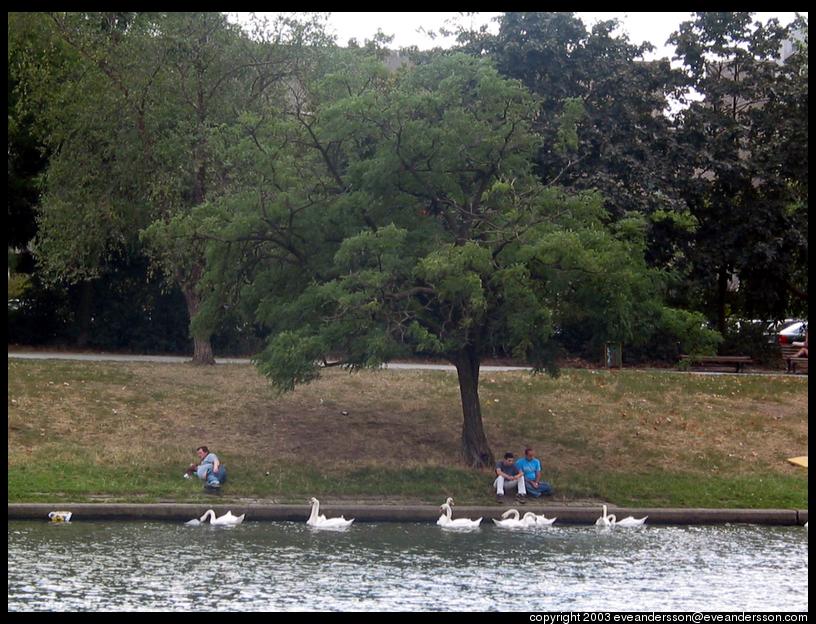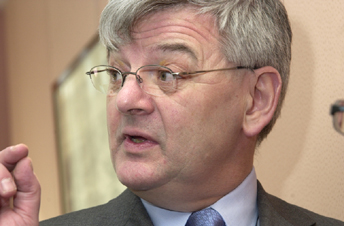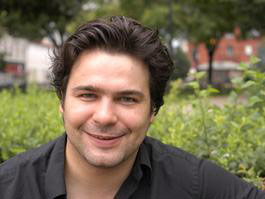A few weeks ago I wrote on this website that “recently, some people have argued that there is a possibility of a new violent conflict in the Western Balkans”. Let me be more specific here.
Today I was sent an article by Bodo Weber and Kurt Bassuener. There they argue that “Bosnia is backsliding into political chaos and possibly even renewed ethnic violence.” The tone of the whole article is deeply alarmist: “international disarray”, “debacle”, “potential break-up of the country”, “resounding failure.” It is an argument they have made many more times elsewhere in recent months, as can be seen on the website of their think tank.

Travnik is peaceful today, but according to some Bosnia remains a powderkeg
What do the authors suggest should be done about this state of affairs? They make the following concrete proposals:
- keep the Office of the High Representative (OHR) intact and preserve its powers until there is a “new and functional constitutional order” (this is not defined); separate it from the EUSR
- the EU should help “reshuffle the deck through the October 2010 elections” (they do not specify in whose favor)
- the EU should “facilitate substantial constitutional reform”
- there should be a shift in US policy, which “would have to occur at the cabinet level, even undertaken by President Obama himself”
- and the US should send a special envoy for the Balkans
This raises many questions. How exactly is the EU to “reshuffle the deck”? Is OHR needed to keep Bosnia from falling apart, to push for a new constitution or both? What does substantial constitutional reform look like? And what would a US envoy do that a US ambassador cannot?
There is also a question of realpolitik: why – given current challenges in Pakistan and Afghanistan, in Iraq and Iran, in Yemen, Columbia, Israel or Haiti – should President Obama himself become interested in a country that has largely demilitarised, has seen no serious incidents of interethnic violence for a decade, has a population one fourth the size of Karachi, and is today surrounded by two neighbours, Serbia and Croatia, which – instead of planning its partition, as they did in 1991 – are committed to their own Western integration?
Vice-president Biden recently visited Bosnia and reaffirmed a US commitment to Bosnian statehood. This was a useful signal. Should Biden visit again? Is any international strategy which relies on an increase in US interest, a willingness to take on Russia and to push aside the EU in Bosnia, realistic? To put this in perspective, it is perhaps useful to look across the US’ southern Border to Mexico. As a recent NYT article noted:
“Although Mexico has been a producer and transit route for illegal drugs for generations, the country now finds itself in a pitched battle with powerful and well-financed drug cartels. In 2008, there were more than 6,200 drug-related murders, more than double the figure from the year before. Top police commanders have been assassinated and grenades thrown, in one case into the crowd at an Independence Day celebration … While Mr. Calderon dismisses suggestions that Mexico is a failed state, he and his aides have spoken frankly of the cartels’ attempts to set up a state within a state, levying taxes, throwing up roadblocks and enforcing their own perverse codes of behavior. The Mexican government has identified 233 “zones of impunity” across the country, where crime is largely uncontrolled, a figure that is down from 2,204 zones a year ago.” (NYT October 2009)
Mexico’s current problems concern the US directly. By comparison, the problems of Bosnia are both manageable and distant. Observers sometimes losely talk about Bosnia today as a failed state, but there are few facts to back this up. Crime rates, as I have shown on this site before, are low even by European standards. Life expectancy is relatively high. Child mortality rates are too high by comparison to Austria or even Croatia, but lower than in Romania or Turkey (see below).

Slavko Lovric, a Bosnian Croat who returned after the war, later became chief of police in Travnik
Bosnia has regular elections. There have been alternations in power at every level of government. The police does not torture, people feel save going out at night, the military does not intervene in politics, and there is full freedom of movement throughout the country. By comparison with Turkey (where thousands of minors are in prison based on draconian anti-terror legislation and where journalists all too often find themselves in court) Bosnia is doing well when it comes to meeting the Copenhagen human rights criteria. This is not to say that Bosnia does not have problems, but it is an argument to put these problems in perspective.
MALE LIFE EXPECTANCY at birth
| Switzerland |
79.0 |
| Sweden |
78.7 |
| Austria |
76.8 |
| Greece |
77.1 |
| Albania |
73.4 |
| Croatia |
72.3 |
| Bosnia |
72.2 |
| Montenegro |
72.4 |
| Macedonia |
71.8 |
| Serbia |
71.7 |
| Bulgaria |
69.5 |
| Romania |
69.0 |
| Armenia |
68.4 |
| Lithuania |
67.5 |
| Georgia |
67.1 |
| Moldova |
65.1 |
| Azerbaijan |
63.8 |
| Russia |
59.0 |
INFANT MORTALITY RATES
Deaths / 1,000 life births
| Sweden |
3.2 |
| Austria |
4.4 |
| Slovenia |
4.8 |
| Croatia |
6.4 |
| Poland |
6.7 |
| Estonia |
7.2 |
| Montenegro |
7.5 |
| Serbia |
11.7 |
| Bulgaria |
11.8 |
| Bosnia |
12.0 |
| Macedonia |
14.8 |
| Romania |
14.9 |
| Russia |
16.6 |
| Albania |
19.2 |
| Turkey |
27.5 |
| World |
49.4 |
Bosnia is failing today most conspicuously by comparison to its (West) European EU neighbours. It has unacceptably high unemployment rates. There are a lot of political tensions (more on those in a later entry). There is widespread pessimism and deep frustration among the population. Bosnia’s leaders are not doing enough to close the prosperity gap even with Croatia and the current pace of reform means that Bosnia will not catch up (or join the EU) for another generation.
All this should concern Europeans, as – and here I fully agree with Kurt and Bodo – the EU’s credibility is at stake in the Balkans. The EU can ill afford a ghetto of backwardness. I would even argue that it owes Bosnians, given its disastrous failures in the 1990s. The Balkans should become as stable as Central Europe, and the road to get there is still long. But does this make Bosnia a priority issue for the US?

A Bosnian imam in Republika Srpska –
the village and the mosque had been destroyed during the war
This is where the rhetoric of a looming threat, abstract warnings about possible large-scale violence in Bosnia, becomes important and the temptation arises to play up such threats, whatever the potential costs to Bosnia’s image, investor confidence, or its EU aspirations. Perhaps, some might argue, fear of a new war – and memories of the slaughterhouse Bosnia had become from 1992 to 1995 – will make a busy US president focus on Bosnia again after all?
But what if this threat does not actually exist? What if the real worst case scenario is the one Daniel Korski recently described as Bosnia stagnating, with all its current problems, to the general indifference of the outside world, both the US and the EU? This would be bad for Bosnians, bad for the Balkan region and bad for the EU. It might even lead to new tensions one day which are not yet visible. But it is hardly a matter over which a US president would lose much sleep today.
(Skeptics might also point out that even the personal involvement of US Secretary of State Condoleeza Rice in 2006 did not prevent the April Constitutional Reform Package, a US inspired draft, from being rejected … and that it was brought down as a result of the votes in parliament of the party led by a man, Haris Silajdzic, who had long put his trust in a stronger US role. Why would this be different the next time around?)
 Everyone agrees that there needs to be constitutional reform to join the EU –
Everyone agrees that there needs to be constitutional reform to join the EU –
the question is how
The notion that Bosnia needs constitutional reform to catch up with its more advanced neighbours is, on the other hand, compelling and largely beyond doubt. The hard question is how to get there. Essentially there are two ways forward. One is to impose it. The other is for Bosnia’s leaders to agree to it.
Do Kurt and Bodo propose to impose constitutional change? For if they do not (and I am not sure) we might not be so far apart in our proposals. ESI has, some years ago, written two papers on what is wrong about the current constitutional debate in Bosnia:
- Making Federalism Work – A Radical Proposal for Practical Reform
- Waiting for a Miracle? The Politics of Constitutional Change in Bosnia and Herzegovina
We never believed that what we proposed here is a master plan for solving Bosnia’s constitutional problems, only that the question – how do you get Bosnian leaders to agree to serious changes that actually make a difference – must be the starting point for any serious reflection.
This is where Kurt, Bodo and many US analysts on the one hand and most of the leaders in today’s European Union on the other part company. While everyone agrees on the need for constitutional change in Bosnia, leaders like Sweden’s Foreign Minister Carl Bildt argue that this is much easier to achieve in the context of a serious EU accession process than outside of it. It is not going to be achieved by inventing criteria for Bosnia which no other candidate had to meet. This did not work with police reform in 2007, when the EU risked its credibility by inventing specific “European standards of policing” which simply did not exist (and its Bosnian counterparts knew it as well as the European Commission).
This does not mean that any progress is guaranteed, even if there is a credible offer of EU candidate status or of opening accession negotiations. The door can be wide open: it is still Bosnian politicians who must agree among each other to walk through it. But there are powerful incentives and one could see them at work even recently.
Sometimes – as in the surprising story of Bosnia’s visa reform effort – these incentives are the result of concrete and immediate benefits the EU can offer. But they are also related to wider regional dynamics.
Most Bosniaks (or Bosnian citizens identifying with their multinational state) would (rightly) hate to see Bosnia fall behind its Serbian neighbour on the road to the EU. But so would most Bosnian Serbs. There is thus a lot of benefit in a healthy regional competition when it comes to EU accession. What this requires is that this competition is organised in a manner that is fair and transparent. Above all it requires that all countries take part in the race for the race to begin. But more on this later.
Further reading: my contribution to the ECFR Bosnia debate today
Dear Daniel,
I do not know where to start: Bosnia’s problems do not lend themselves to solutions that can be formulated in four paragraphs. But let me try and use this opportunity to get Kurt, and others who share his vision of Bosnia’s problems, to explain in more detail what it is that the rest of us are missing.
Central to Kurt’s argument is the claim that “Bosnia is backsliding into political chaos and possibly even renewed ethnic conflict” (as he writes in an essay I read today) and that the risk of a return to armed conflict can “no longer be excluded”.
Who does he expect to pick up arms? Which Bosnian leader would contemplate this today? What is the scenario for such an escalation? Does Kurt know things that EU military observers, who have reduced EUFOR to an almost negligable size and do not feel guilty of irresponsibility, miss?
Please be concrete: which leader in Bosnia do you suspect is contemplating the use of armed force and a “renewed ethnic conflict”? Which group do you believe is ready to return to war? Without answering the question of what the real threat is, it is hard to confront it.
After all, to say that Bosnia is a country on the verge of disintegration is not a minor thing. If foreign or domestic investors would believe Kurt, they should rethink any future investment. Failing states also do not make credible candidates for EU accession. Most importantly, if the EU would believe Kurt, the debate about OHR would be a sideshow, a dangerous diversion even, from the real burning issues. No OHR-type mandate would have stopped Bosnia sliding into war in 1992 by “dismissing” Radovan Karadzic from his position as Serb leader. For this force was needed. So if there is a real threat of armed conflict then the urgent priority would be to send substantially more foreign soldiers to prevent another tragedy from happening.
I do not believe that there is any such threat, and as a result I believe it is deeply irresponsible to keep on talking in vague terms about it. This damages Bosnia on so many levels. But I hope Kurt will go beyond referring to “popular fears” to tell us why he thinks this risk, which he argues did not exist in 2006, when Kostuncia was leader in Belgrade, exists today.
Perhaps the EU could do a better job spelling out that Bosnia will never be allowed to fall apart, even if this is obvious to any European policy maker. There are then two obvious points to make: first, any Bosnian politician calling on people to pick up weapons again would be treated as a criminal, not as a political interlocutor. The first one who orders somebody to shot would end up in a European jail, with no place to hide. Second, an independent RS would be as miserable a place as Transdnistria, or Abchazia without Russian help. The EU has not recognized Northern Cyprus in decades, and it never will. It will never recognize any alternative to the current Bosnian state. As I said, this may be obvious but sometimes the obvious benefits from being restated.
My second question to Kurt concerns his vision of a “new and functional constitutional order”: what is this exactly? This is not, after all, a debate that started today. Is it the implementation of the April 2006 package of constitutional changes? Is it going further than the April package, towards abolishing the entities and the cantons? Or is it about turning the entities into mere administrative units, with no real autonomy?
Is a functioning Bosnia similar to today’s Belgium (a highly decentralized federal state)? Or to the Cyprus of the Annan plan (an even more decentralized state), which would have entered the EU in 2004, if the Annan plan would have been accepted? Is there a future for a complicated Federation inside the Bosnian federation in Kurt’s “functional constitutional order”? Is there room in it for a semi-autonomous Brcko district? Would this Bosnia still be a federal state?
These are not rhetorical questions. I accept Kurt’s argument that there is a lot that is dysfunctional about Bosnia’s current constitutional set up. Things have to change profoundly, in the interests of Bosnian citizens and in light of Bosnia’s EU aspirations. But how does he see this being helped by a continued OHR presence? To do what: Impose constitutional change by decree? Threaten politicians who do not accept certain reforms (with sanctions or dismissal)?
I could now sum up the conclusions I draw from my answers to these questions. But let me first get Kurt to try to change my mind (and, more importantly, that of most EU policy makers who do not share his threat assessment) about the concrete threats which he sees; realistic scenarios for a return to armed conflict; about the core features of a “functional constitutional order” and about the role of a strong OHR to promote constitutional changes.





